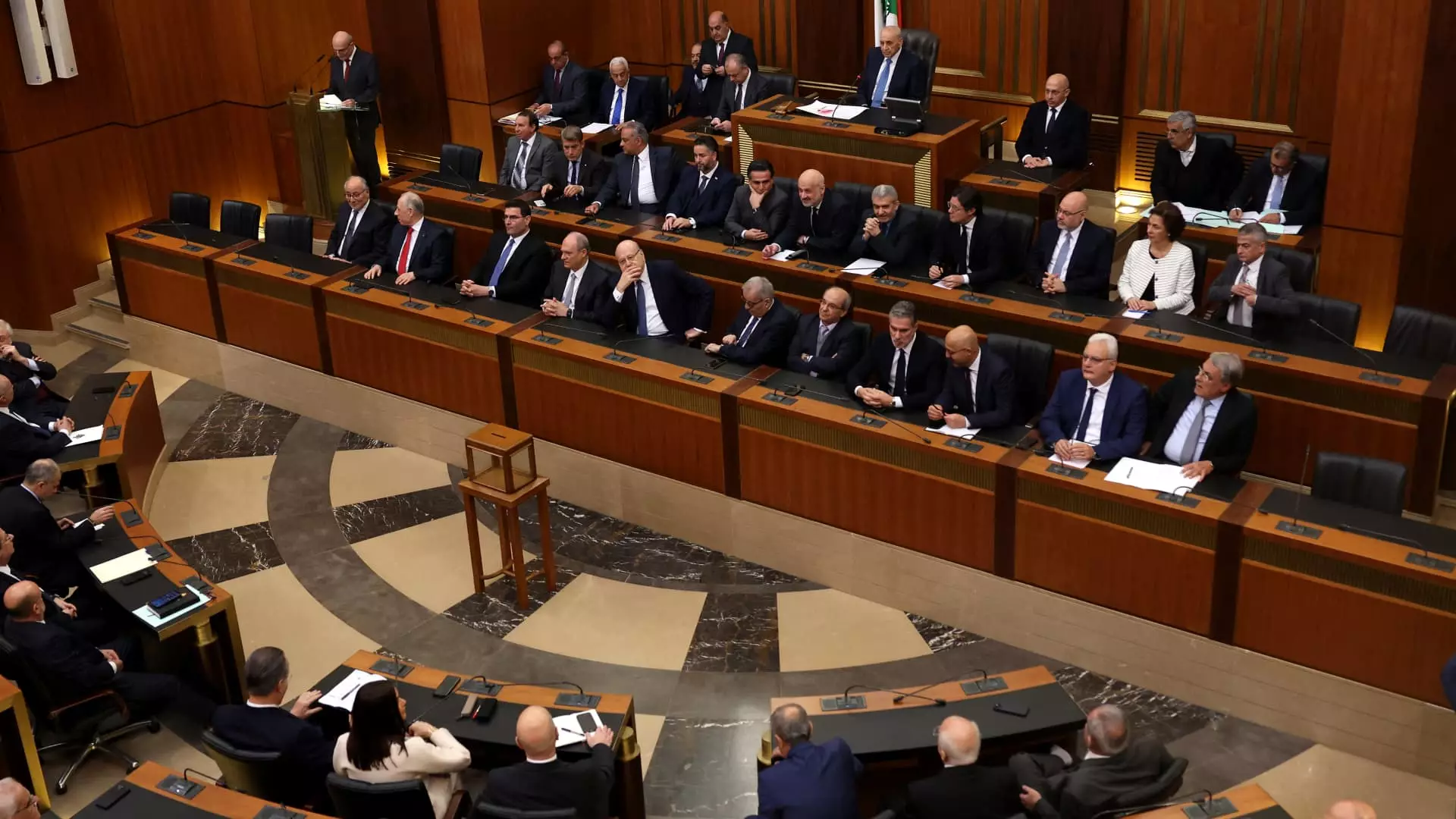In a significant political shift, Lebanon’s parliament has elected Army Chief Joseph Aoun as the new head of state. This moment marks not just the filling of a long-vacant presidential seat but also signifies a crucial turning point in the balance of power within Lebanon and its broader geopolitical landscape. The election of Aoun, who has garnered favorable views from Washington, presents a formidable indicator of diminished Iranian influence, particularly that wielded through the militant group Hezbollah, which suffered substantial losses in its recent conflict with Israel.
The backdrop of this election is one marked by internal strife and external pressures. With Hezbollah’s standing severely compromised following last year’s military confrontations, the elections signify a decisive weakening of its political leverage. Coupled with the recent challenges faced by Syrian President Bashar al-Assad, Hezbollah is experiencing a dismantling of the regional power structures that once fortified its stance in Lebanese politics.
The nearly year-long vacancy of the presidential office, which has been reserved for a Maronite Christian under Lebanon’s complex sectarian power-sharing arrangements, underscores the deep divisions that have plagued the nation’s politics since Michel Aoun’s presidency ended in October 2022. The inability of the various factions to present a unified candidate led to an impasse, showcasing the extent of Lebanon’s fragmentation.
Despite an initial ballot where Aoun fell short of the requisite votes, a shift occurred in subsequent negotiations that led to his victory—99 votes confirming his ascension to the presidency. This adjustment was not merely coincidental; it reflects a strategic withdrawal by Hezbollah’s preferred candidate, Suleiman Frangieh, who opted to back Aoun amidst intense lobbying from Saudi and French diplomats, demonstrating an orchestrated effort by external actors to stabilize Lebanon through Aoun’s election.
The convergence of international and local interests encapsulated in Aoun’s election cannot be overlooked. Figures close to the Saudi royal court indicated that Aoun’s candidacy was pivotal for the resumption of international financial aid crucial for Lebanon’s recovery from its profound economic turmoil. The nation’s financial collapse in 2019, compounded by exogenous shocks such as the recent conflict with Israel, has rendered Lebanon desperate for external support.
Statements made by Lebanese lawmakers emphasized that comprehensive aid from international financiers—including Saudi Arabia—was contingent upon having a stable leadership entity in place. As Lebanon edges toward re-establishing functional governance, Aoun’s presidency is seen as a crucial first step in this regard. He now bears the daunting responsibility of nominating a Sunni Prime Minister, which is a process often fraught with negotiation and political bartering among Lebanon’s fragmented factions.
Joseph Aoun’s appointment also highlights a pressing need for a strengthened Lebanese military presence along the southern borders amid delicate ceasefire arrangements with Israel. Aoun’s leadership is expected to enhance the Lebanese military’s role in ensuring stability and deterring future conflicts. The ceasefire accords, brokered by major powers such as the U.S. and France, require the Lebanese military to replace withdrawing Israeli forces and Hezbollah combatants, placing Aoun at the center of post-war territorial management.
The military strength Aoun brings stems from his tenure as army commander, wherein the U.S. has supported him, reinforcing the American strategy to bolster legitimate state institutions while curtailing Hezbollah’s authority. Observers are keenly aware that Aoun’s capability to effectively execute these responsibilities might not only determine the political atmosphere in Lebanon but could redefine military engagements and diplomatic relationships within the wider Middle Eastern context.
Joseph Aoun’s election certainly initiates a renewed chapter for Lebanon, with immediate implications for international relations, local governance, and military strategies. However, the complexities of Lebanon’s sectarian landscape and the interplay of regional powers suggest that this is not merely the end of a political vacuum but perhaps the beginning of yet another intricate phase in Lebanon’s storied political evolution. The challenge will be whether Aoun can navigate the treacherous waters of a divided political landscape while restoring faith in a system long marred by corruption and instability. The hope remains that, with international support, Lebanon might emerge from this tumultuous period more unified and resilient, though the path ahead remains fraught with uncertainty.

Leave a Reply